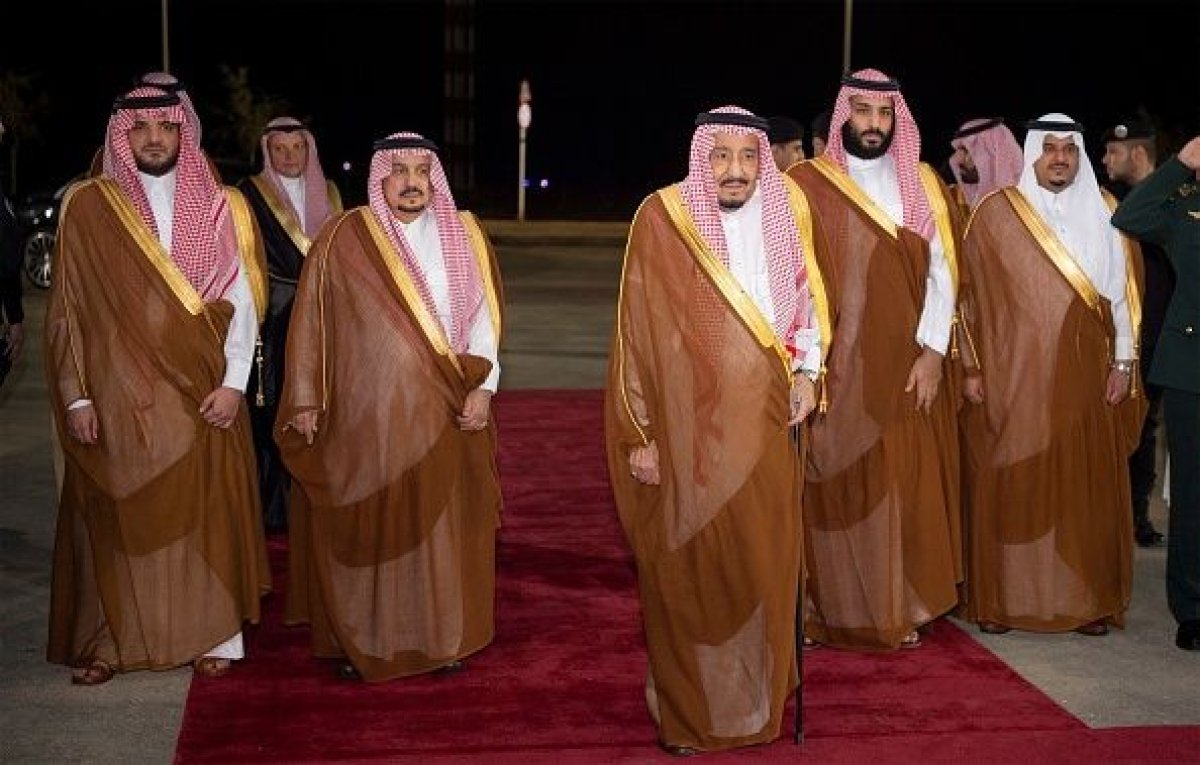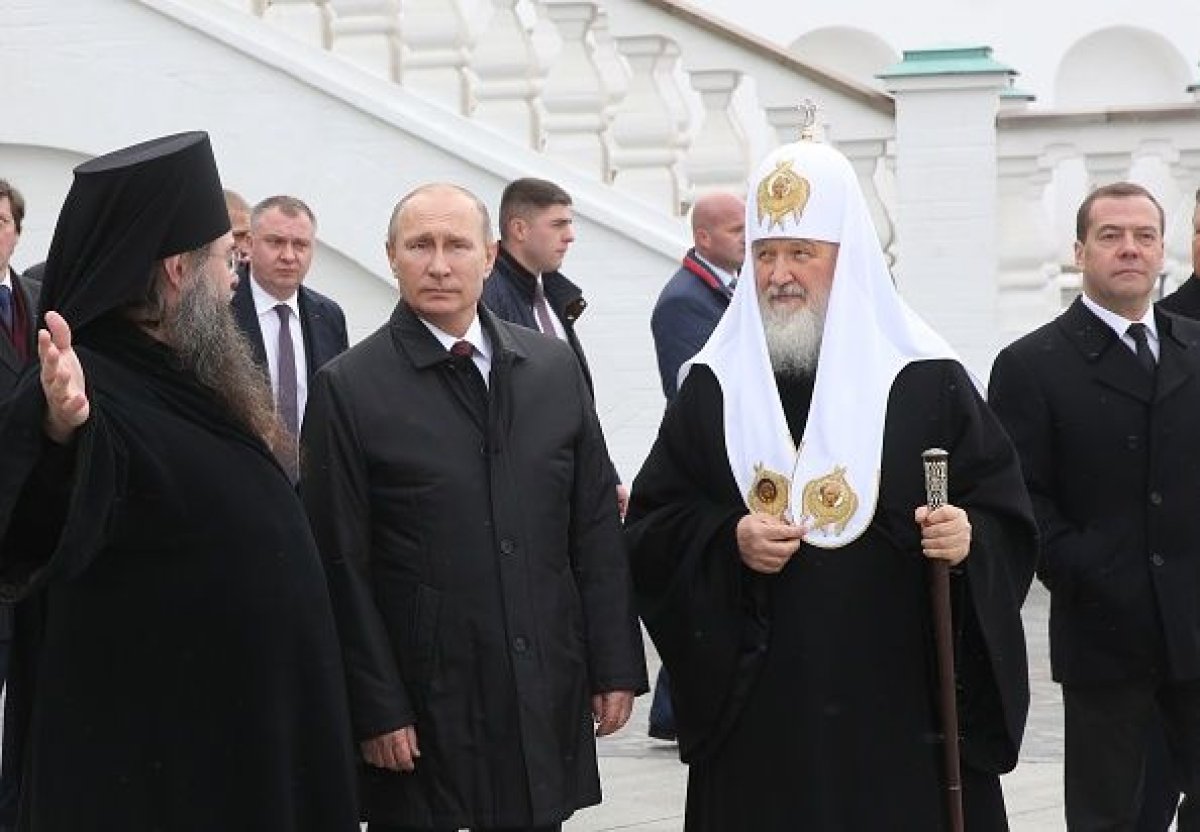On Thursday, two large and influential countries will face off at the World Cup: Russia and Saudi Arabia.
Both countries play important roles in world affairs and have powerful, authoritarian leaders. But their similarities end there.
The Kingdom of Saudi Arabia is a desert country surrounded by the Red Sea and the Persian Gulf, and it shares a land border with Jordan, Kuwait, Iraq, Qatar, the United Arab Emirates, Yemen and Oman. The country has a population of around 32 million people who are ruled by an absolute monarchy led by the powerful family of King Mohammad bin Salman Al Saud. The king serves as the head of state and as the head of the government.
Although a basic law, signed by royal decree in 1992, lays out the responsibilities of the state's institutions, it is not legally binding or specific enough to be considered a constitution—in reality, the royal family and the religious institutions hold the most power. Both the government and most of the country's population is Sunni Muslim and follows an ultraconservative interpretation of the Quran.
Until recently, public movie theaters and concerts were banned due to religious restrictions, and women were not allowed to drive. But the Saudi royal family's heir apparent, the young Crown Prince Mohammad bin Salman, has been pushing to modernize the country and relax some of these rules.
The country is considered the birthplace of Islam and is home to the religion's holiest sites, Mecca and Medina, where the Prophet Mohammad was born and buried. Muslims from around the world travel to Saudi Arabia every year as a pilgrimage.
The country has a vast wealth of natural resources like oil and gas, and its gross domestic product is estimated to be around $678.5 billion. However, a large part of the reason Saudi Arabia is now attempting to modernize is that it needs to diversify its economy in an era of low oil prices. To achieve this end, the country is allowing concerts, cinema and other forms of entertainment industries to open for its young population.

Russia is an even larger country than Saudi Arabia, with an estimated population of 144 million people. It's also the world's largest country by land size, covering around 6.6 million square miles and nine time zones. The country's gross domestic product is also bigger than Saudi Arabia's—at around $1.4 trillion—according to the CIA.
Unlike Saudi Arabia, Russia is considered a democracy. Several experts, however, cast doubt on whether the democratic process is fair. Last year, Russian President Vladimir Putin became the longest-serving leader since the death of former Soviet leader Joseph Stalin. He is also believed to control most aspects of policymaking in the country, as some political scientists call the Russian political system "competitive authoritarianism," instead of a democracy.
Religion in Russia is not intricately connected with the rule of law. But Putin has close ties to the Russian Orthodox Church, and belief in the orthodoxy has been transformed since the fall of communism into a symbol of national identity for many Slavic Russians.

Nevertheless, followers of Islam, Judaism, and other religions also live in Russia. And some Russian republics, such as Chechnya or Dagestan in the Caucasus region, are majority-Muslim. Not all religious groups seem to enjoy freedom: Russia has recently clamped down on Jehovah's Witnesses, labeling their group an "extremist sect."
Moscow's military is also much more powerful than Saudi Arabia's. Russia is a nuclear-armed power that has 7,500 warheads, whereas Saudi Arabia does not have nuclear weapons. Russia also has around 770,000 active military personnel, while Saudi Arabia has just 230,000. However, the two countries have a similar military budget, ranging between $63-69 billion.
According to Global Firepower, Saudi Arabia ranks 26 out of 136 countries in terms of military strength, with a total of 844 aircraft and 203 fighter aircraft. Riyadh also has 1,142 combat tanks, 5,472 armored fighting vehicles and 55 naval assets. On the other hand, Russia ranks second and possesses 3,914 overall aircraft, 818 fighter aircraft, 20,300 combat tanks, 27,400 armored fighting vehicles and 352 naval assets.
Uncommon Knowledge
Newsweek is committed to challenging conventional wisdom and finding connections in the search for common ground.
Newsweek is committed to challenging conventional wisdom and finding connections in the search for common ground.
About the writer
Cristina Maza is an award-winning journalist who has reported from countries such as Cambodia, Kyrgyzstan, India, Lithuania, Serbia, and Turkey. ... Read more
To read how Newsweek uses AI as a newsroom tool, Click here.








